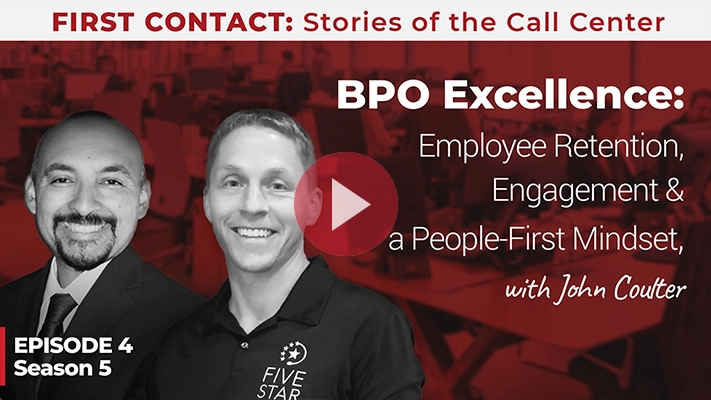What is a BPO Call Center ?
A Business Process Outsourcing (BPO) call center is a third-party service provider that manages call center operations for other businesses. These call centers handle a variety of tasks, such as customer support, order processing, and telemarketing. By outsourcing these functions to a BPO provider, businesses can concentrate on their core activities while leveraging the BPO’s expertise and efficiency.
In this article, we’ll explore the ins and outs of BPO call centers, their services, and the pros and cons of outsourcing your call center operations as a business.
What Does a BPO Call Center Do?
BPO call centers offer a wide range of services, both inbound and outbound, to help businesses manage their customer interactions more effectively. These services are designed to streamline operations, enhance customer satisfaction, and boost overall business efficiency.
BPO Call Center: Pros and Cons
Before diving into the specific services, it’s essential to understand the overall advantages and disadvantages of using a BPO call center.
Pros
Cost Reduction
One of the most significant advantages of using a BPO call center is the potential for cost savings. Outsourcing to a BPO provider can reduce the costs associated with hiring, training, and maintaining an in-house call center team. Additionally, BPO providers often operate in regions with lower labor costs, further driving down expenses.
24/7 Support
BPO call centers can offer round-the-clock support, ensuring that your customers receive assistance at any time of day or night. This is particularly beneficial for businesses with a global customer base or those that operate in multiple time zones.
Access to Expertise
BPO providers specialize in call center operations and bring a wealth of expertise to the table. They have trained agents, advanced technology, and established processes that can enhance the quality and efficiency of your customer interactions.
Scalability
BPO call centers offer scalability, allowing businesses to quickly ramp up or down their operations based on demand. This flexibility is crucial for handling seasonal spikes, product launches, or unexpected increases in customer inquiries.
Cons
Training Requirements
While BPO call centers provide trained agents, businesses may still need to invest time and resources in training these agents on their specific products, services, and brand values. Ensuring that outsourced agents align with your company’s standards and expectations can be challenging.
Security Risks
Outsourcing involves sharing sensitive customer information with a third party, which can pose security risks. It’s essential to choose a BPO provider with strong data security measures and compliance with relevant regulations to mitigate these risks.
Communication Challenges
Working with an external provider, especially one located overseas, can sometimes lead to communication challenges. Differences in time zones, language barriers, and cultural differences can impact the quality of service and collaboration between your in-house team and the BPO provider.

“Outsourcing your call center operations to a BPO provider can transform your business by reducing costs, enhancing efficiency, and delivering round-the-clock support, all while allowing you to focus on your core strengths.” Christian Montes Executive Vice President Client Operations
Inbound BPO Call Center Services
Inbound BPO call centers handle incoming customer interactions, such as calls, emails, and chats. These services are crucial for maintaining high customer satisfaction and ensuring efficient handling of customer inquiries.
Customer Support
BPO call centers provide customer support services, helping businesses manage customer inquiries, complaints, and technical support issues. This ensures that customers receive timely and professional assistance, improving overall satisfaction and loyalty. Skilled agents are trained to handle a wide range of issues, from simple queries to complex technical problems, providing consistent and reliable support.
Order Processing
Order processing services involve handling customer orders, from initial inquiries to final delivery. BPO call centers manage the entire order lifecycle, ensuring accuracy and efficiency in processing, tracking, and fulfilling orders. This service is particularly valuable for e-commerce businesses and companies with high volumes of transactions, as it helps streamline operations and reduce errors.
Dispatch Services
Dispatch services coordinate the delivery of products or services, ensuring that customers receive their orders promptly and accurately. This service is essential for businesses that rely on timely delivery to maintain customer satisfaction. BPO providers use advanced logistics and tracking systems to optimize dispatch operations, reducing delays and enhancing the overall customer experience.
Outbound BPO Call Center Services
Outbound BPO call centers focus on proactive customer interactions, such as sales and marketing efforts, to drive business growth and reach new customers.
Telemarketing
Telemarketing services involve reaching out to potential customers to promote products or services. BPO call centers use targeted marketing strategies to generate leads and increase sales opportunities. Experienced agents engage with prospects through personalized and persuasive communication, effectively conveying the value of your offerings and encouraging interest.
Telesales
Telesales services go a step further by closing sales over the phone. Skilled BPO agents engage with customers, answer their questions, and persuade them to make a purchase, driving revenue for the business. Telesales is particularly effective for upselling and cross-selling, as agents can tailor their approach based on the customer’s needs and preferences.
Market Research
Market research services involve collecting and analyzing data from customers to gain insights into market trends and customer preferences. This information helps businesses make informed decisions and develop effective strategies. BPO call centers use various research methods, such as surveys, interviews, and data analysis, to gather valuable insights that can drive product development, marketing campaigns, and business growth.
When is it Time to Outsource as a Business?
Determining the right time to outsource your call center operations can be challenging. Businesses should consider outsourcing when they face high operational costs, struggle to maintain service quality, or need to scale operations quickly. Additionally, companies experiencing rapid growth, seasonal fluctuations, or a desire to focus on core competencies may find outsourcing to be a strategic advantage.
Step-by-Step Guide on Outsourcing for Call Centers
Outsourcing can be a complex process, but following these steps can help ensure a smooth transition and successful partnership with a BPO call center.
1. Figure Out Your Needs
Identify the specific services and support your business requires from a BPO call center. This will help you find a provider that meets your unique needs. Consider factors such as the volume of interactions, the complexity of inquiries, and the level of expertise required.
2. Choose the Best Service Provider for Your Business
Local or Overseas?
Decide whether to choose a local or overseas BPO provider. Local providers offer better communication and cultural alignment, while overseas providers may offer cost savings. Evaluate the trade-offs between proximity, cost, and service quality to make an informed decision.
Do You Need Specializations?
Consider whether your business requires specialized services, such as technical support or multilingual capabilities. Choosing a provider with the right expertise can enhance the quality of service and improve customer satisfaction.
What’s Your Budget?
Determine your budget for outsourcing to ensure you find a provider that offers the best value for your investment. Compare pricing models, service packages, and potential cost savings to make a financially sound choice.
3. Have a Clear BPO Strategy
Develop a comprehensive BPO strategy that outlines your goals, expectations, and key performance indicators (KPIs) for the outsourcing partnership. This strategy should include metrics for measuring success, communication protocols, and processes for handling issues that may arise.
4. Make It Contract-Bound
Ensure that your agreement with the BPO provider is clearly defined in a contract, outlining the scope of services, pricing, and performance metrics. A well-structured contract protects both parties and provides a framework for managing the outsourcing relationship.
5. Plan Your Transition Phase
Create a detailed transition plan to ensure a smooth handover of operations from your in-house team to the BPO provider. This plan should include timelines, training programs, and contingency measures to address any challenges during the transition.
6. Monitor Your Results Regularly
Regularly review the performance of the BPO call center to ensure they are meeting your expectations and delivering the desired results. Use KPIs and feedback mechanisms to assess service quality, identify areas for improvement, and maintain alignment with your business objectives.
Pros and Cons of Using BPO for Your Call Center or Contact Center
Outsourcing your call center operations to a BPO provider comes with its own set of advantages and disadvantages.
Pros
1. It Helps You Reduce Costs
BPO call centers often offer significant cost savings compared to maintaining an in-house call center. Reduced labor costs, lower infrastructure expenses, and economies of scale contribute to overall cost efficiency.
2. It Allows You to Provide 24/7 Support
BPO providers can offer round-the-clock support, ensuring that your customers receive assistance at any time. This continuous availability enhances customer satisfaction and loyalty, as customers appreciate being able to reach support whenever they need it.
3. It Helps Lighten the Load on Staffing
Outsourcing can reduce the burden on your internal staff, allowing them to focus on core business activities. By delegating routine and repetitive tasks to the BPO provider, your team can concentrate on strategic initiatives and higher-value work.
It Could Be a More Efficient Option for Your Contact Center
BPO call centers bring expertise and efficiency, often resulting in improved performance and customer satisfaction. Their specialized knowledge, advanced technology, and streamlined processes can enhance the overall effectiveness of your call center operations.
Cons
1. You Might Need to Do More Training
Ensuring that BPO agents are well-trained in your products and services may require additional effort and resources. Ongoing training and development are essential to maintain service quality and ensure agents can effectively represent your brand.
2. There Might Be Security Risks
Outsourcing involves sharing sensitive customer information, which can pose security risks if not managed properly. It’s crucial to choose a BPO provider with robust data security measures, compliance with relevant regulations, and a commitment to protecting customer data.
Brayan Carpio
Outsourcing your call center operations to a BPO provider can offer numerous benefits, from cost savings to improved efficiency. However, it’s essential to carefully consider your needs and choose the right provider to ensure a successful partnership. At NobelBiz, we offer Omni+, an innovative solution that integrates all communication channels into one platform, and our state-of-the-art Telecom Network to help you deliver exceptional customer experiences. Contact us today to learn more about how we can support your call center needs.
To fully capitalize on the benefits of outsourcing your call center services, consider integrating NobelBiz Omni, an omnichannel contact center software that combines various communication channels into a single platform.

Michael McGuire is a contact center industry expert with almost two decades of experience in the space. His experience includes roles as Director of Contact Center Digital Transformation at NobelBiz, and as Director of Operations at FLS Connect, managing multiple call centers. As President of Anomaly Squared and Targeted Metrics, Michael successfully transitioned companies into remote operations and significantly boosted revenues. With a strong background in customer service, leadership, strategic planning, and operations management, Michael excels in driving growth and innovation in the call center space.
Mike is also a proud Board Member for R.E.A.C.H Trade Group, promoting consumer protection and satisfaction and Co-host of the Off Skripted Podcast – a show about Life, Call Centers and everything in between.








